Each year, fisheries biologists in McCall conduct a routine gill-netting survey on Lake Cascade to monitor trends in the fish community. This survey involves an entire week of netting; capturing and measuring enough fish (over one thousand) to get an accurate depiction of the lake community each year. The information collected from these surveys provide managers with important knowledge about Lake Cascade’s sport fishery. Here’s a summary of some of the things we’ve learned from our recent surveys.
Perch Numbers Are Up - Here’s Why
Perch numbers increased in 2020 when compared to the previous three years, which is very encouraging. We saw many more perch in the 8 to 11 inch size range than we have seen in several years (Figure 1).
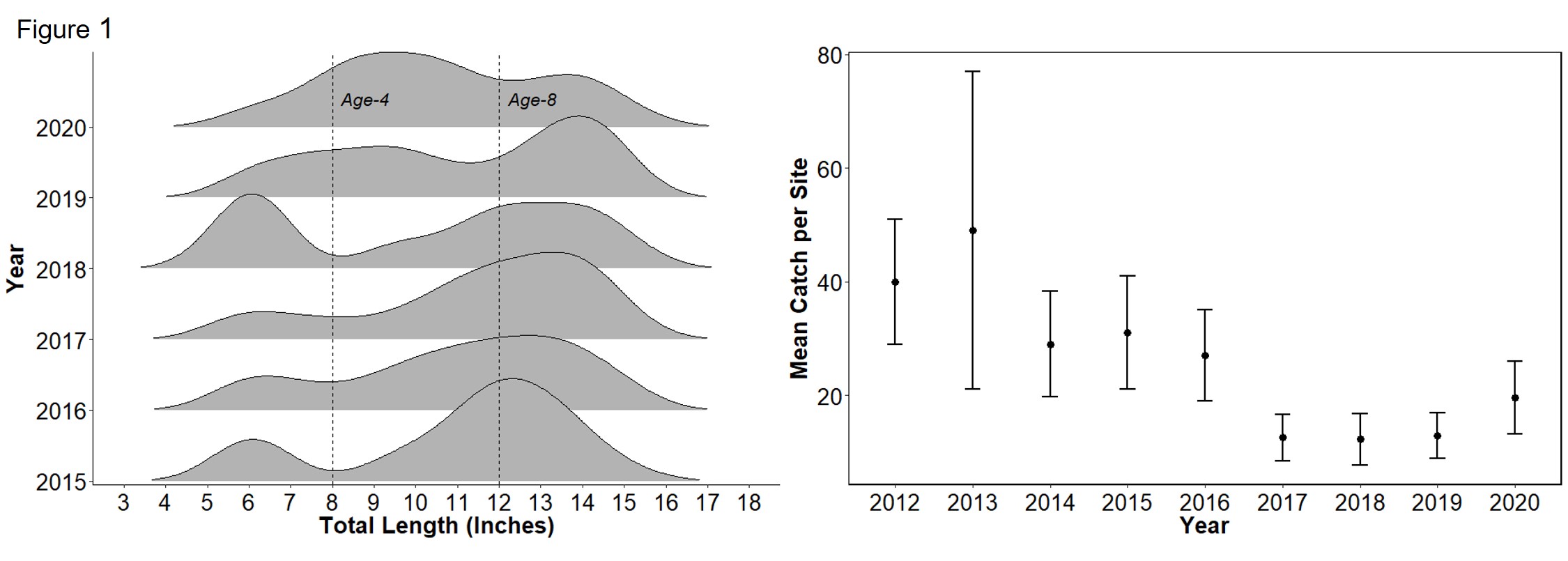
However, as many anglers have experienced, we still see a decline in the number of “Jumbo” perch. This decline in “Jumbo” numbers was expected (2018 update), because previous surveys showed that perch larger than 13 inches in Lake Cascade are between 8 and 13 years old – which is extraordinarily old for perch!
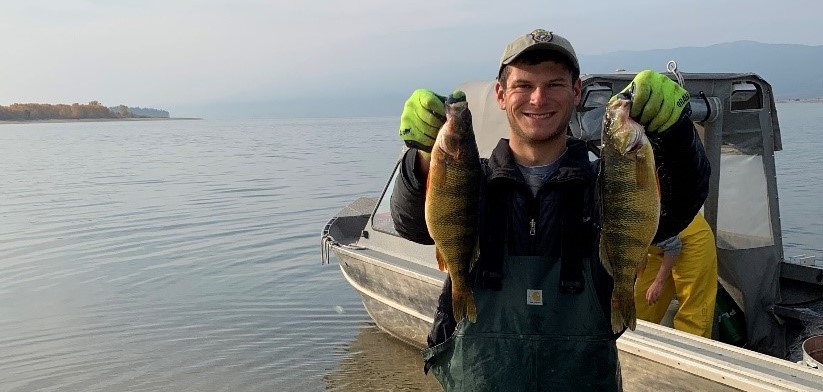
It may not seem like it, but a shift in perch sizes is good news for the future of the fishery. Perch fisheries are very cyclical in nature - large numbers of adults can lead to low numbers of juvenile perch coming into the population for a number of years. This can lead to alternating periods of ‘good fishing’ and ‘poor fishing’. Higher numbers of age-4 and older age classes in 2020 is encouraging because juvenile perch survival can be a bottleneck in Lake Cascade. Once a perch reaches 10 inches, angler harvest becomes the primary source of mortality. Previous studies have shown fishing mortality to be very low in Lake Cascade (only 15-20%). Low angling pressure is one reason Lake Cascade’s famous “Jumbo” perch are able to reach such incredible sizes and old ages.
BIG Rainbows, Kokanee Salmon, and Smallmouth Bass in Lake Cascade
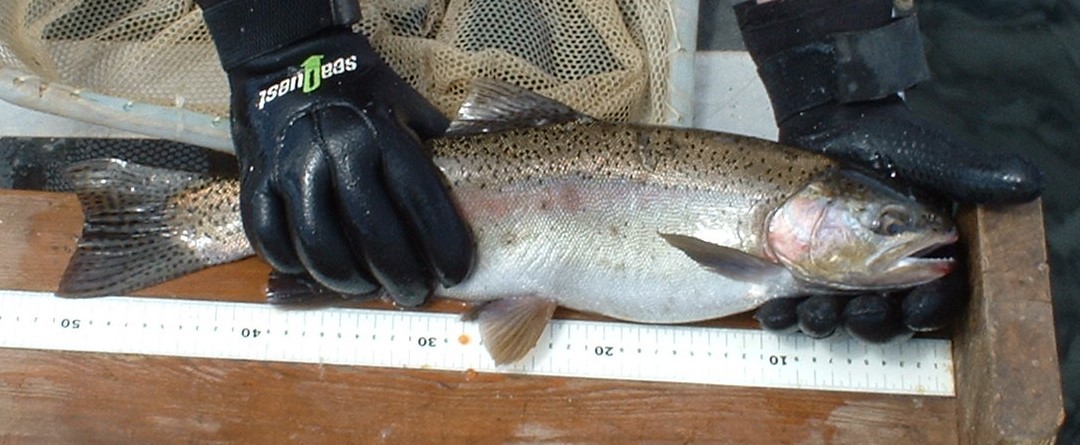
Anglers should continue to catch good numbers and sizes of rainbow trout and kokanee in Lake Cascade this winter and next spring. In our fall 2020 survey, we continued to see rainbow trout over 23 inches and kokanee over 18 inches! Smallmouth bass made up roughly 10% of the total catch, and anglers should look forward to fishing for plenty of 10 to 16 inch smallmouth along rocky shorelines next summer.
Northern Pikeminnow Numbers Also Up
Biologists also use these annual surveys to keep tabs on Lake Cascade’s northern pikeminnow population. Pikeminnow are good predators, and previous studies have shown they can have a significant negative impact on juvenile perch, trout, and kokanee survival. When there are lots of big pikeminnow, we can see a decline in the quality of the perch fishery. Therefore, trends in pikeminnow populations and size structure are closely monitored to determine when it’s time to reduce the pikeminnow population, to help improve the quality of the fishery.
Although overall pikeminnow numbers have not increased in recent years, the population has become increasingly mature - comprised largely of fish longer than 14 inches (Figure 2).
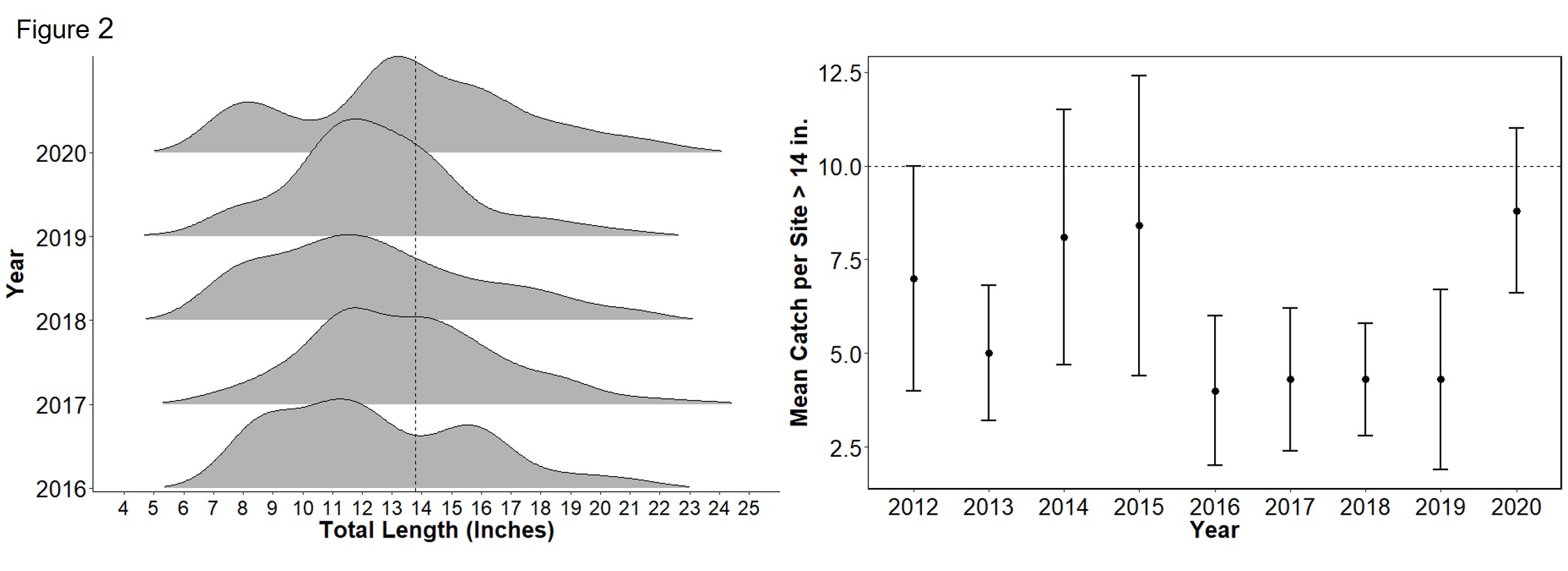
This is one of the characteristics we keep a close eye on. As this shift in size structure occurs, fishery managers will follow actions outlined in the 2019-2024 State Fisheries Management Plan (link here) for Lake Cascade, which includes aggressively reducing the pikeminnow population.
Overall, Good News
With ice fishing just around the corner, anglers targeting large perch and rainbow trout on Lake Cascade should expect another excellent season. The 2020 survey suggests Lake Cascade remains one of the finest perch fisheries in the world, with size structure that is unparalleled; producing not only three state records, but two world record perch in recent years. Anglers can also enjoy new ice fishing access on Lake Cascade this season (link here).
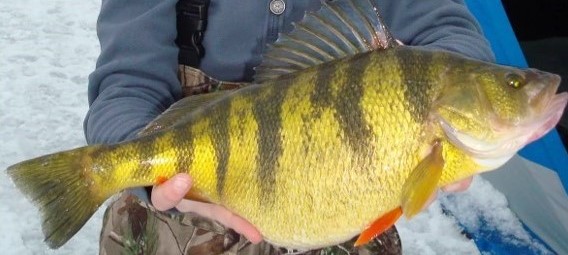
In addition to this outstanding perch fishery, anglers looking to catch large rainbow trout, kokanee salmon, and smallmouth bass should also expect good catch rates and sizes of fish in 2021.
For further information about Lake Cascade and other fisheries in the McCall area, contact the McCall Fish and Game office at (208) 634-8137 or email: jordan.messner@idfg.idaho.gov
Remember to renew your fishing license at the change of the calendar year. If you have a 3-year license, it’s a good time to check when it expires before you hit the water!

